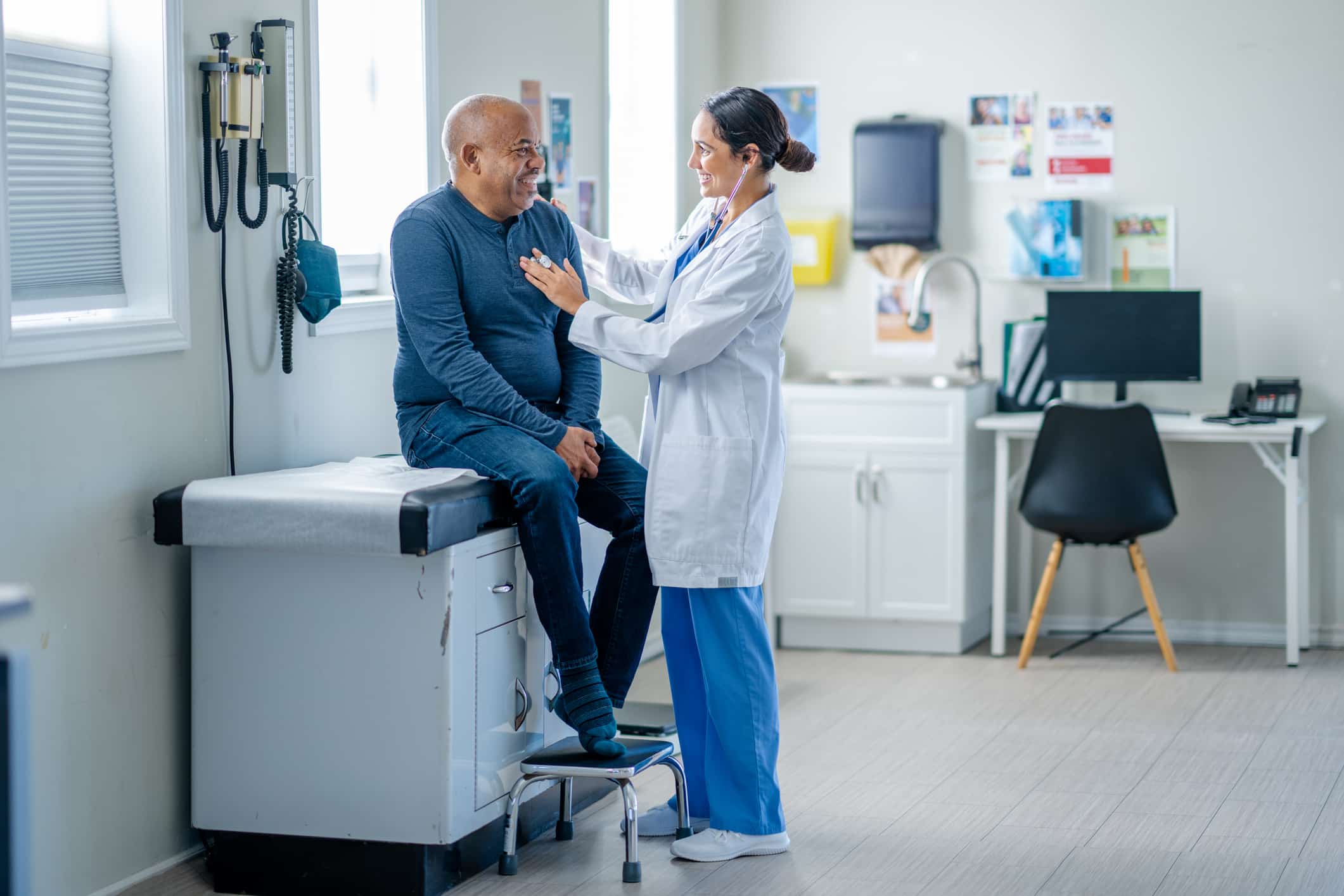The remedē System is an innovative, FDA-approved medical implant indicated for adult patients with Central Sleep Apnea (CSA)—and it’s now an available treatment option for certain ECU Health patients. CSA is an abnormal breathing pattern that disrupts normal breathing during sleep; there is a disconnect between the need to breathe and the brain sending signals to the diaphragm. Symptoms include chronic fatigue, irritability and brain fog, but there are other secondary outcomes to sleep apnea, such as worsened heart arrythmias and congestive heart failure. The remedē System provides a significant advance in the treatment of CSA when other interventions are not effective.
The remedē System is implanted beneath the collar bone with one or more leads that are placed near the phrenic nerve. The device then delivers mild electric impulses that stimulate the phrenic nerve, which signals to contract the diaphragm and helps patients breathe when there’s an absence of that stimulus from the brain.

After programming the device, the system turns on when the patient lies down to rest during their normal sleep time. Dr. John Catanzaro, the division chief of cardiology at East Carolina Heart Institute, sees the remedē System as an important option for patients with CSA. “There’s a very low risk with this treatment, and phrenic nerve stimulation is a contemporary option for patients with CSA who haven’t responded well to other therapies,” he said.
Patients undergo a screening process at ECU Health’s Sleep Center to determine their eligibility for the procedure. After implanting the device, the surgical team tests it to ensure it works and the patient doesn’t have any side effects. Once the implantation site is healed, the Sleep Center team takes over to determine how to administer the therapy and restore the patient’s sleep pattern.
To get this technology to ECU Health, it required collaboration among professionals from different disciplines, including Dr. Zia Rehman, the medical director of the Sleep Center, Dr. Rajasekhar Nekkanti, cardiologist, professor and director of the Cardiology Fellowship and Dr. Sam Sears, a professor in ECU’s departments of psychology and cardiovascular sciences and an expert on the psychological care and quality of life outcomes of patients with implantable defibrillators.
That the remedē System specifically treats CSA is an important distinction, especially since ECU Health is now the only place in North Carolina other than Winston-Salem to offer the procedure. This provides care to a significant population and will provide an overall improvement in patients’ quality of life while resulting in fewer hospitalizations – achievements that align with ECU Health’s mission and values. “We want ECU Health to be a leader in health care for the state of North Carolina and beyond,” said Dr. Rehman.
The intent is that the program will treat 12-15 patients the first year, with the goal to serve 35 – 40 patients annually after that. To learn more about sleep apnea, including the use of remedē as a treatment option, visit https://healthlibrary.ecuhealth.org/Search/85,P01301.